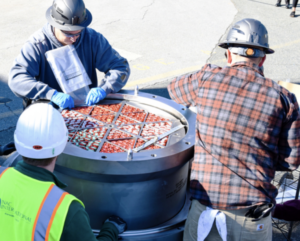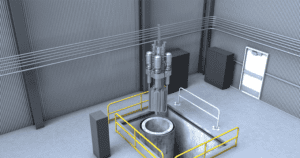Morgan County, Illinois will host a sequestration site for carbon dioxide captured by the Department of Energy’s revamped $1.3 billion FutureGen pilot project. The FutureGen Alliance said on Monday that site best supported the overall mission of the project cost-effectively.
Morgan County will also host a visitor center and research and training facilities. Among the factors that resulted in selection of the site were its “high quality geology, which is well suited for safe and secure long-term storage of CO2, and its close proximity to the [FutureGen 2.0] power plant, which simplifies pipeline routing and substantially reduces the project’s overall cost.” Also important, the alliance said, were “a strong show of support from community business and elected leaders, as well as significant support from directly affected landowners.”
The DOE’s so-called “FutureGen 2.0” project contemplates repowering of an existing Ameren 200-MW coal unit in Meredosia, Ill., using oxyfuel technology—not construction of an integrated gasification combined-cycle facility at Mattoon, Ill., as originally envisioned. The project had also originally called for use of a Mattoon geologic storage site to sequester carbon dioxide, but the city of Mattoon last year declined participation in the project.
Carbon dioxide is now expected to be shipped by pipeline and injected into the Mount Simon Sandstone porous layer of rock, which lies under several Midwestern states. The rock layer is about 850 feet thick under Morgan County.
Construction of the project is set to begin in 2012; the target completion date is 2015. Repowering Ameren’s Meredosia Unit 4 with advanced oxycombustion technology will involve a new boiler, air separation unit, CO2 purification, and a compression unit, the DOE said. Like the original project, FutureGen 2.0 will “deliver 90% CO2 capture and eliminate most SOx, NOx, mercury, and particulate emissions,” the DOE said last year.
Now that site selection is complete, the alliance expects to conduct further geologic characterization this summer. “Should concerns arise around the technical, legal, or public acceptability of the preferred site, the Alliance has identified the Christian and Douglas County sites as alternative sites,” it said.
Sources: POWERnews, FutureGen Alliance







